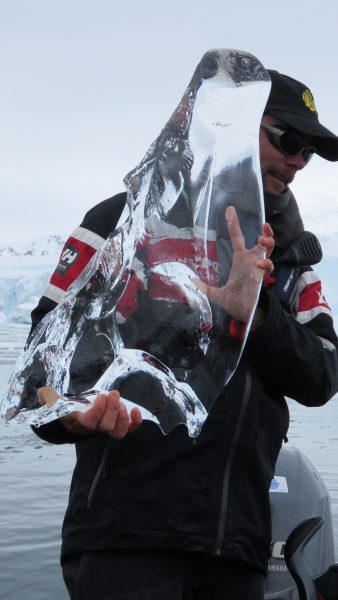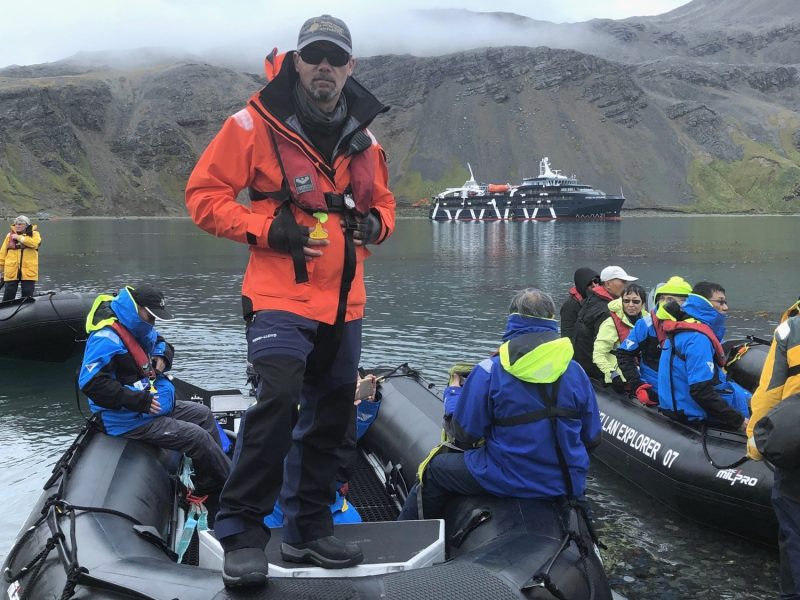My name is Bob Gilmore, and I’ve been working and guiding in the polar regions for over 20 years now. I first reached Antarctica in 1996 with the USAP (United States Antarctic Program) at McMurdo Station. I was instantly hooked, it was magic in all directions, and when I discovered the Polar tourism industry in 2002 it was a done deal.
So what have Antarctic guides been up to since our careers have taken a face plant? Whilst there is no denying that we’ve been dreaming of glaciers, whales, penguins and igneous rocks during the pandemic, we’re overcoming the temporary loss in diverse ways. Some are exploring their local areas and getting acquainted with their artistic sides whilst others are leading mountain climbing missions, mastering the art of fly fishing in Patagonia or battling the cold in the northern hemisphere.
“Whilst there is no denying that we’ve been dreaming of glaciers, whales, penguins and igneous rocks during the pandemic, we’re overcoming the temporary loss in diverse ways.”

Before I started guiding I was lucky enough to live near Aspen, Colorado. I dabbled in remodelling kitchens and bathrooms and finally built entire houses. With that feather in my cap, I moved halfway across the country to Anacortes, Washington some 20 years later and launched my own carpentry business. It keeps my mind challenged and provides a bit of income. I still get to play in the mountains, as I did in Colorado, but there are also glaciers nearby, and humpback whales and orcas in the San Juan Islands.
One gift that Covid-19 has given us is time. I usually move at 100 km an hour this time of year, so I’ve welcomed a chance to push the pause button. As one of the founding members of the Polar Citizen Science Collective, this time has been a blessing. We’re attempting to help the scientific community better understand changes in the Polar regions while allowing passengers to participate in real-time research and educational lectures through citizen science cruises.
We’ve been developing our Standard Operating Procedures, we’ve created a UK-based Charity and we’re vetting new scientific programs – and we’re not alone. There are many motivated individuals and scientific organizations taking on the task of cataloguing marine wildlife to get an idea of population numbers and habitat use across the Antarctic Peninsula and the Southern Ocean.
“One gift that Covid-19 has given us is time. I usually move at 100 km an hour this time of year, so I’ve welcomed a chance to push the pause button.”

Alongside this, I work with a number of Polar operators who are preparing for when Antarctic travel re-opens. I’m collaborating with one to orchestrate an in-house educational curriculum for their guides. We invite experts to host informal online lectures on topics such as ornithology, glaciology, history and marine mammals – the list goes on – enabling the guides to become better naturalists.
The world is a challenging place these days, but the human will is resilient and we, together, are moving forward. I hope that wherever you are in this gorgeous place that we call home you are safe, happy and getting out there.